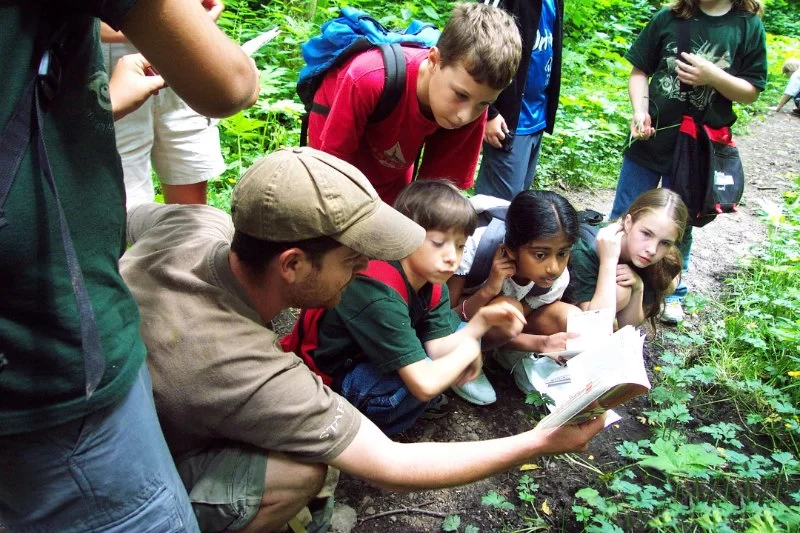Explore the benefits of outdoor research for environmental education. Learn how hands-on fieldwork boosts learning, fosters sustainability, and how Pine Cliff Resort supports immersive eco-education.

- why-outdoor-research-matters-in-education
- learning-beyond-classrooms-environmental-impact
- cognitive-and-social-benefits-of-field-based-learning
- case-studies-that-highlight-outdoor-research-success
- how-pine-cliff-resort-supports-environmental-education
1. Why Outdoor Research Matters in Education
In a time when environmental challenges are more pressing than ever, education must evolve to meet real-world demands. That’s where the benefits of outdoor research for environmental education come into play. Unlike traditional classroom instruction, outdoor research engages students directly with ecosystems, giving them firsthand experience in scientific observation, critical thinking, and ecological responsibility.
Whether it’s tracking butterfly migrations in a local meadow or analyzing soil samples near freshwater lakes, this kind of hands-on learning shapes not just knowledge but mindset. Students become more than passive recipients—they become explorers, observers, and ultimately, environmental stewards.
2. Learning Beyond Classrooms: Environmental Impact
2.1 Building Personal Connections with Nature
One of the most profound impacts of outdoor research is that it bridges the gap between theory and experience. A child who learns about climate change from a textbook may understand the concept—but a child who hikes through a drought-affected forest and measures stream temperatures will feel its urgency.
These personal connections are often the spark that leads to lifelong environmental commitment. Educators have found that students who participate in environmental field research are more likely to adopt sustainable behaviors, such as recycling or conserving water, even after a single well-structured outdoor session.
2.2 Real-Time Observation and Ecological Awareness
Outdoor research offers the irreplaceable advantage of real-time observation. Instead of viewing static images of wetlands or coral reefs, students witness ecological systems in motion—bird calls, plant decay, insect pollination—all in their natural rhythm. This elevates environmental education from abstract understanding to immersive experience.
3. Cognitive and Social Benefits of Field-Based Learning
3.1 Enhancing Critical Thinking and Problem-Solving
Outdoor research nurtures problem-solving in ways classrooms rarely can. For example, when a group of high schoolers sets out to test water quality in a nearby river, they must consider sampling methods, control variables, equipment limitations, and even how to document their findings. That hands-on complexity builds confidence and scientific literacy.
3.2 Encouraging Teamwork and Communication
Field-based learning naturally encourages collaboration. Students work in teams, share tasks, discuss findings, and support one another in navigating outdoor conditions. These interactions strengthen communication and empathy—skills that serve them beyond the environmental realm.
3.3 Reducing Screen Fatigue and Boosting Mental Health
In a post-pandemic world where screen time dominates, outdoor education provides a much-needed counterbalance. Numerous studies link time in nature with reduced anxiety, improved mood, and increased cognitive performance—making environmental fieldwork not just intellectually enriching but emotionally restorative.
4. Case Studies That Highlight Outdoor Research Success
4.1 The “Creek Watch” Middle School Project
In Ohio, a middle school launched a “Creek Watch” initiative where eighth graders conducted monthly water testing. Within six months, students noticed abnormal pH levels linked to nearby construction runoff. Their findings were reported to local environmental authorities, who acted on the data. That experience gave those kids a powerful realization: their research could drive real change.
4.2 Appalachian Mountain Ecology Camp
Every summer, this camp immerses students in plant identification, wildlife tracking, and soil analysis in the Blue Ridge Mountains. According to feedback from attendees, over 70% expressed a greater desire to pursue environmental science careers after attending. The camp also encouraged schools to create their own year-round field programs back home.
5. How Pine Cliff Resort Supports Environmental Education
If you're looking for a base to facilitate outdoor research or environmental learning trips, Pine Cliff Resort offers the perfect setting. Nestled amid forested trails and freshwater ecosystems, the resort provides more than just relaxation—it’s a live classroom. With spaces for group workshops, nature tours, and equipment rental, it's ideal for school outings, college fieldwork, or even family-based eco-education trips.
What makes Pine Cliff Resort truly unique is its commitment to sustainability. Solar-powered cabins, recycling programs, and guided ecological tours ensure that every stay supports the environment as much as it celebrates it. For those interested in integrating nature with education, Pine Cliff Resort is more than a destination—it’s a partner in purpose.
Elfendahl Forest
Hurd Rd, Belfair, WA 98528, USA
Visit Location PageCinch Rv Park
128 Oberg St, Ganado, TX 77962, USA
Visit Location Page